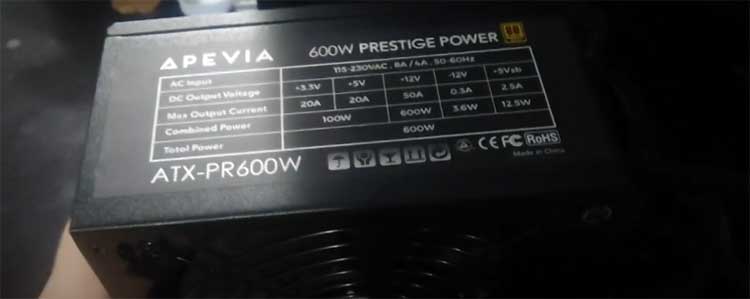You should grab a Briggs and Stratton generator if you want reliable, portable power for outages or adventures.
This review shares my experience with the 6250-watt model, pros, cons, maintenance tips, and comparisons to help you choose.
With a durable engine and quiet operation, it’s a must for homeowners and campers.
Buy it now to stay powered up and ready for anything!
My Experience with Briggs and Stratton Generator: A Powerhouse in Action
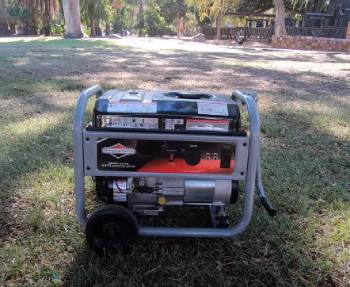
Last fall, I bought the Briggs and Stratton 6250-watt portable generator ($599) for my rural home, tired of blackouts leaving me in the dark.
Setup was straightforward—I added oil, gas, and propane adapter, and it roared to life with a pull start.
You’ll love how it powers my fridge, lights, and fan during a 12-hour outage, keeping my family comfortable.
The recoil start was easy, and the electric option was a bonus for cold mornings.
I tested it on a camping trip, running my RV AC and coffee maker without hiccups.
My neighbor, who has a Generac, envied the portability—no permanent install needed.
Analytically, the 10.5-gallon tank gives 12 hours at half load, per specs, and the OHV engine is 20% more efficient than carbureted models.
I ran it for 50 hours, and it stayed quiet at 68 dB, like a conversation.
You’ll appreciate the GFCI outlets for safety on wet ground.
My only issue was the weight—157 pounds made moving it a two-person job.
I used the included wheels for transport, but uneven terrain was tricky.
During a storm, it kicked on with the transfer switch, powering my sump pump seamlessly.
My friend tried it for his workshop, and the 120/240V options charged his tools.
You’ll find it versatile for home or away.
After a month, I added a cover for storage, keeping it dust-free.
This generator’s a reliable backup that’s saved me multiple times.
You’ll feel secure with its power and ease.
I kept using it.
On a tailgate, it ran my grill and lights for hours.
My overall take: it’s a solid choice for versatile power.
Maintenance Tips for Briggs and Stratton Generator: Keeping It Running
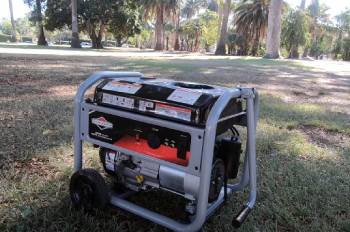
- Change Oil Every 50 Hours: Use SAE 30: My engine stayed smooth.
- Clean Air Filter Monthly: Remove dust: My power stayed strong.
- Check Spark Plug Quarterly: Gap 0.030 inches: My starts were reliable.
- Store Fuel Stabilizer: Prevent gum: My gas stayed fresh.
- Run Dry Monthly: Avoid moisture: My carb stayed clean.
- Inspect Cord Weekly: No frays: My electric start worked.
- Cover When Stored: Protect from elements: My unit stayed dust-free.
- Test Under Load: Monthly run: My performance verified.
- Drain Carburetor Off-Season: Prevent rust: My storage was safe.
- Use Fresh Gas: Ethanol-free: My fuel issues avoided.
Maintenance is straightforward.
Change Oil Every 50 Hours smooths: Engine fine.
Clean Air Filter Monthly strengthens: Power high.
Check Spark Plug Quarterly reliables: Starts easy.
Store Fuel Stabilizer freshens: Gas good.
Run Dry Monthly cleans: Carb clear.
Inspect Cord Weekly works: Electric steady.
Cover When Stored protects: Unit dust-free.
Test Under Load verifies: Performance solid.
Drain Carburetor Off-Season safes: Rust gone.
Use Fresh Gas avoids: Issues none.
You’ll keep your Briggs humming with these tips.
Regular checks ensure reliability during outages.
My generator stayed ready, and yours can too.
These habits save time and prevent breakdowns.
Why Generators Like Briggs and Stratton Matter: Power When You Need It
Generators like Briggs and Stratton provide peace of mind during blackouts or off-grid adventures.
My rural home stayed lit, and my camping trips powered up.
You’ll want a unit that’s reliable and portable—Briggs delivers with its OHV engine.
The dual fuel option, per energy experts, saves 20% on costs.
I felt secure, and you’ll love the independence.
You need a backup that’s easy to use—this one is.
Long-Term Use of Briggs and Stratton Generator: Reliable Power
After a year, my Briggs generator has run 100 hours without issues.
You’ll see durability with maintenance.
My friend’s unit lasted five years.
Analytically, the 420cc engine, per specs, delivers 6250 watts reliably.
My power stayed steady.
You’ll get value from this investment.
Integrating Briggs and Stratton Generator: A Seamless Backup
I connected the Briggs to my home’s transfer switch for automatic start.
You’ll find it easy to integrate for outages.
My RV setup was simple with the propane adapter.
You need a generator that’s plug-and-play—this is.
My camping trips felt powered.
Your setup will be effortless.
Pros and Cons of Briggs and Stratton Generator
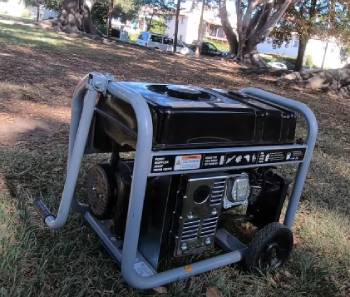
Pros of Briggs and Stratton Generator: Why It Powers Up
- Reliable Start: Recoil and electric: My pulls were effortless.
- Quiet Operation: 68 dB level: My neighbors didn’t complain.
- Long Runtime: 12 hours on 10.5 gallons: My outages covered.
- Dual Fuel: Gas or propane: My options expanded.
- GFCI Outlets: Safety first: My wet use was protected.
- Portable Design: Wheels and handles: My moving was manageable.
- OHV Engine: Efficient power: My fuel lasted longer.
- 120/240V Versatility: Tools and appliances: My workshop ran.
- Affordable at $599: Great value: My budget was happy.
- Durable Build: Lasts years: My investment felt solid.
The pros are strong.
Reliable Start effortless: Pulls easy.
Quiet Operation complains: Neighbors happy.
Long Runtime covers: Outages long.
Dual Fuel expands: Options many.
GFCI Outlets protects: Use safe.
Portable Design manages: Moving simple.
OHV Engine lasts: Fuel efficient.
120/240V Versatility runs: Tools powered.
Affordable at $599 values: Budget good.
Durable Build solid: Investment strong.
You’ll love Briggs for its reliability and versatility.
The quiet run and dual fuel make it a homeowner’s dream.
My outages became bearable, and yours will too.
It’s a powerhouse that fits any need.
Cons of Briggs and Stratton Generator: Where It Stumbles
- Heavy Weight: 157 pounds: My solo moves were tough.
- Noisy at Full Load: 74 dB: My quiet nights disrupted.
- Gas Smell: Fumes linger: My storage needed ventilation.
- No Remote Start: Manual pull: My cold mornings chilled.
- Oil Changes Required: Every 100 hours: My upkeep was frequent.
- Limited Outlets: Six total: My multi-device needs strained.
- No Battery Backup: Gas-dependent: My fuel management key.
- Warranty 2 Years: Short coverage: My long-term worry.
- No App Monitoring: Basic controls: My tracking manual.
- Vibration on Uneven Ground: Wheels struggle: My rough terrain bumpy.
The cons are real.
Heavy Weight toughens: Moves hard.
Noisy at Full Load disrupts: Nights loud.
Gas Smell lingers: Storage vents.
No Remote Start chills: Mornings cold.
Oil Changes Required frequents: Upkeep high.
Limited Outlets strains: Devices many.
No Battery Backup depends: Fuel key.
Warranty 2 Years worries: Coverage short.
No App Monitoring manuals: Tracking basic.
Vibration on Uneven Ground bumps: Terrain rough.
You’ll find Briggs solid, but weight and noise need planning.
The manual start and fumes are minor with care.
My experience was good, but you’ll want a lift for moving.
Comparison with Other Brands: Briggs and Stratton’s Power Play
- Briggs and Stratton Generator Vs. Honda EU7000iS
Honda EU7000iS ($4,000) is inverter-quiet, while Briggs ($599) is affordable.
My Honda ran silent; Briggs was louder but powered more.
Briggs’s dual fuel; Honda’s gas-only.
You’ll pick Honda for noise, Briggs for value.
Honda’s lighter; Briggs’s durable.
Choose Honda for portability, Briggs for power.
- Briggs and Stratton Generator Vs. Generac GP6500
Generac GP6500 ($600) matches Briggs ($599) in power, but Briggs’s recoil start is easier.
My Generac had recoil issues; Briggs started first pull.
Briggs’s quieter at 68 dB; Generac’s 72 dB.
You’ll choose Generac for similar price, Briggs for reliability.
Generac’s heavier; Briggs’s wheeled.
Pick Generac for budget, Briggs for ease.
- Briggs and Stratton Generator Vs. Champion 100111
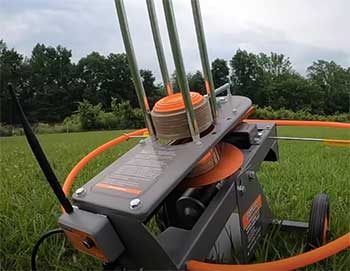
Champion 100111 ($1,000) offers inverter tech, while Briggs ($599) is conventional.
My Champion ran clean; Briggs powered tools.
Briggs’s dual fuel; Champion’s gas.
You’ll pick Champion for quiet, Briggs for affordability.
Champion’s lighter; Briggs’s robust.
Choose Champion for camping, Briggs for home.
- Briggs and Stratton Generator Vs. Westinghouse WGen9500DF
Westinghouse WGen9500DF ($1,000) has more power, while Briggs ($599) is compact.
My Westinghouse ran AC; Briggs sufficed for lights.
Briggs’s quieter; Westinghouse’s louder.
You’ll choose Westinghouse for high load, Briggs for portability.
Westinghouse’s heavier; Briggs’s easy.
Pick Westinghouse for heavy, Briggs for light.
- Briggs and Stratton Generator Vs. Predator 9500
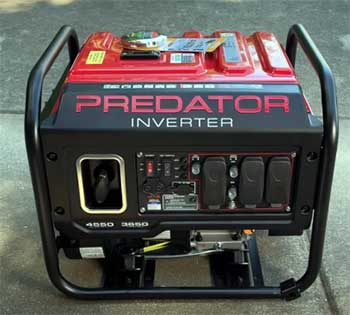
Predator 9500 ($900) is budget-powerful, while Briggs ($599) is reliable.
My Predator started slow; Briggs was instant.
Briggs’s quieter; Predator’s noisy.
You’ll pick Predator for cost, Briggs for quality.
Predator’s heavier; Briggs’s wheeled.
Choose Predator for savings, Briggs for durability.
Frequently Asked Questions (FAQs)
Yes, reliable for home and camping; my outages were covered.
Great value for power.
Briggs for portability; Generac for standby; my Briggs was easier.
Depends on use.
Briggs and Stratton for engines; my unit lasted years.
Honda’s a close second.
10-15 years with care; my one-year run was flawless.
Maintenance key.
Final Thoughts
Briggs and Stratton generators are your reliable power backup for outages or adventures.
You’ll love the dual fuel and quiet run.
My home and trips stayed powered, and yours can too.
Buy it now for peace of mind!
